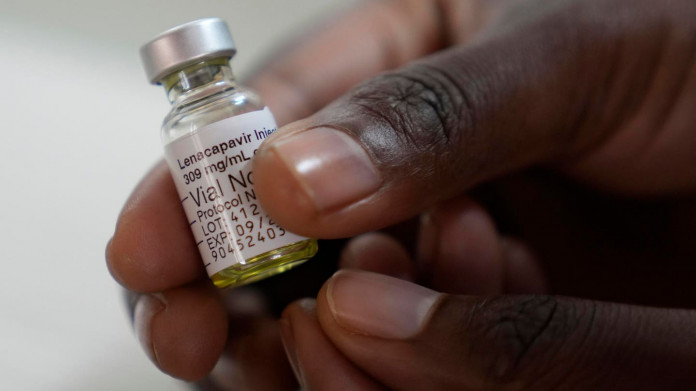By Foday Moriba Conteh
Gilead Science’s twice-yearly shot for treating HIV prevented new infections by 96% among patients in a late-stage trial, according to findings released by the company adding to earlier findings indicating the medication is effective in preventing the spread of the disease.
Only two patients who received the drug, approved for treating HIV, contracted the disease.
Only two patients among 2,180 participants—including men, transgender and nonbinary people who have sex with men—who received Gilead’s lenacapavir contracted HIV, according to the biopharmaceutical firm.
The trial began in 2021 and required the patients—who were not told whether they received Truvada or lenacapavir—to receive an injection once every six months and a daily pill, either of which could have been a placebo.
Nine of the more than 1,000 patients who received Truvada, Gilead’s daily pill for treating HIV, contracted the disease.
In June, Gilead said none of the 2,134 women who received lenacapavir in a separate study contracted HIV, compared to 16 of the more than 1,000 women who took Truvada.
Gilead intended to continue the latest trial for several more months, but decided to end the study early because lenacapavir was 89% more effective than Truvada, the company said.
39.9 million. That’s the estimated number of people worldwide who are living with HIV as of 2023, according to the World Health Organization. About one in every 30 adults in Africa (3.4%) are living with HIV, accounting for roughly two-thirds of global HIV cases, the agency said.
Lenacapavir is sold by Gilead for about $41,400 for a year’s supply for treating HIV, though it is not immediately clear whether the drug will have a different price when used for preventing the spread of the disease. Gilead has said it plans to reduce the drug’s price and meet global demand by increasing production which will enable “widespread availability.”
Researchers have studied possible cures and prevention for the spread of human immunodeficiency virus, a virus that attacks the body’s immune system. The disease has no effective cure, according to the Centers for Disease Control and Prevention, though some studies suggest stem cell transplants could be used as treatments. Gilead has said it is developing its medicines to help prevent the disease’s spread, including in countries that may have limited resources in treating the virus. If the virus goes untreated, it could result in acquired immunodeficiency syndrome, the CDC said. HIV is often detected through symptoms resembling flu-like symptoms within two or four weeks of infection, and the CDC noted, “Once people get HIV, they have it for life.”




